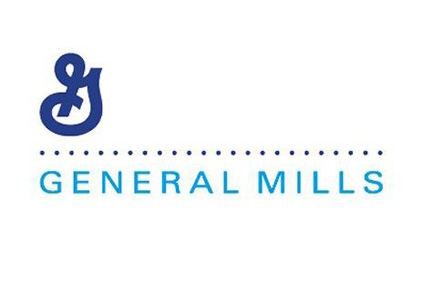General Mills, Minneapolis, announced today its commitment to sustainably source 100% of its 10 priority ingredients by 2020. These ingredients represent 50% of General Mills’ total raw material purchases. The commitment builds on the company’s sustainability mission to conserve and protect the resources upon which its business depends.
Part of General Mills’ long-term sustainable sourcing strategy, the commitment covers a broad range of raw materials including oats, wheat, corn, dairy, fiber packaging, cocoa, vanilla, palm oil, sugar cane and sugar beets.
“General Mills is committed to creating long-term value for our business, and our society,” says Ken Powell, CEO of General Mills. “Producing enough food to feed an increasingly hungry world will require not only innovation and dedication, but also careful attention to the impact of agriculture on our environment.”
The opportunities for each priority ingredient are unique and geographically specific, which require General Mills to pursue a range of sustainable approaches including certification, verification, continuous improvement and origin-direct investment.
“As a food company, we know that the vitality of our business depends upon access to high-quality ingredients,” says Jerry Lynch, vice president and chief sustainability officer at General Mills. “We also know where we can have the greatest impact from an environmental standpoint. We believe that through sustainable sourcing, we can create the most long-term economic, environmental and social value.”
Improving sustainability is a continuing process, one that General Mills does not undertake alone. Nearly two-thirds of the company’s greenhouse gas emissions and 99% of water use occur outside its operations, primarily in agriculture. Therefore, General Mills believes it can have the greatest impact by working with industry partners and nongovernmental agencies across the supply chain to identify new solutions.
“By understanding their environmental risks, prioritizing where the company can have the greatest impact and committing to sustainable sourcing, General Mills can have a significant impact,” says Dave McLaughlin, vice president of agriculture, World Wildlife Fund (WWF). “The company has an opportunity to take a leading role in the move toward global sustainable agriculture, while addressing critical issues like ecosystem health and water scarcity.”
Since 2010, General Mills and WWF have been working together to integrate sustainability into the company’s supply chain, conducting a supply-risk analysis of the company’s agricultural sourcing and water-risk assessment.
In addition, General Mills counts among its partners industry groups, including Field-to-Market: The Alliance for Sustainable Agriculture and Bonsucro as well as nongovernmental organizations like The Nature Conservancy and CARE.
Specific commitments by ingredient area are as follows:
Oats: 100% of the company’s oats will be sourced from growing regions that demonstrate continuous improvement against industry-based environmental metrics.
Wheat and sugar (beets): 100% of the company’s U.S. wheat and sugar beets will be sourced from growing regions that demonstrate continuous improvement against the Field-to-Market framework or comparable environmental metrics.
Corn: 100% of the company’s dry milled corn will be sourced from growing regions that demonstrate continuous improvement against the Field-to-Market framework or comparable environmental metrics.
Dairy: 100% of General Mills’ directly sourced fluid milk will originate from producing regions that demonstrate continuous improvement as measured by the Dairy Sustainability Framework (U.S.) or other comparable environmental metrics (globally).
Cocoa and vanilla: 100% of the company’s cocoa and vanilla will be sourced through origin-direct investment, which will improve the incomes of smallholder farmers and the quality of ingredients.
Palm oil: 100% of the company’s palm oil will be sourced from responsible and sustainable sources in 2015.
Sugar (cane): 100% of General Mills’ sugar cane will be sourced from responsible and sustainable sources.
Fiber packaging: 100% of the company’s fiber packaging will be from recycled material or from virgin wood fiber regions that are known to not be contributing to deforestation. Any high-risk regions will be independently verified.
In addition to its sustainable commitment, General Mills will continue to support the humane treatment of animals in agriculture. The company will enforce its animal welfare policy, which covers pork, milk and egg production, antibiotic use and animal testing.
To achieve its 2020 goal, General Mills will continue to follow a four-step sustainable sourcing model: assessment, strategy formation, transformation and monitoring/evaluation.
Assessment: In 2011, General Mills worked with WWF to complete a comprehensive, supply risk analysis of all the agricultural raw materials the company buys worldwide. This assessment prioritized raw materials that were analyzed against dozens of potential risk categories such as human rights, deforestation, economic sustainability, fertilizer (nitrogen) use, greenhouse gas (GHG) emissions, soil loss, water quality and water use. In addition, the company worked with the Rainforest Alliance to assess fiber sourcing.
Strategy formation: General Mills identified the priority raw materials where it can have the greatest impact from a sourcing standpoint—wheat, oats, palm oil, vanilla, cocoa, corn, dairy, eggs, fiber packaging and sugar (sugar beets and sugar cane). The company will focus on developing strategies for sustainably sourcing these materials.
Transformation: Through its work with outside partners, General Mills leads and participates in pilot projects, sharing the results so others in the industry can continue to refine their approach. The company has taken the lead in pursuing sustainable solutions for wheat and oats.
Monitoring and evaluation: General Mills’ efforts to monitor and evaluate its progress are ongoing. When necessary, the company involves third-party auditors to help measure and analyze its results.
Since the early 1900s, General Mills has worked closely with smallholder farmers around the world to promote sustainable agriculture. Through the company’s present-day Holistic Value Creation strategy, it is building a model focused on origin direct investment, which improves livelihoods and ensures sustainable sources of raw materials.
Most recently, General Mills, the General Mills Foundation and Green Giant launched a program in Peru to foster improved profitability for smallholder, primarily female, artichoke farmers to ensure the availability of premium artichokes for consumers in France and throughout Europe. A similar program was initiated in Madagascar to foster greater economic vitality for smal-holder vanilla farmers to ensure the availability of high-quality vanilla for future generations.
“We are dedicated to working directly with smallholder farmers,” said Lynch. “The ripple effect from our investment is clear across these small communities—by strengthening farmer livelihoods, we see an increase in the overall standards of living. Our partnerships with these farmers are a true expression of our mission of nourishing lives.”







